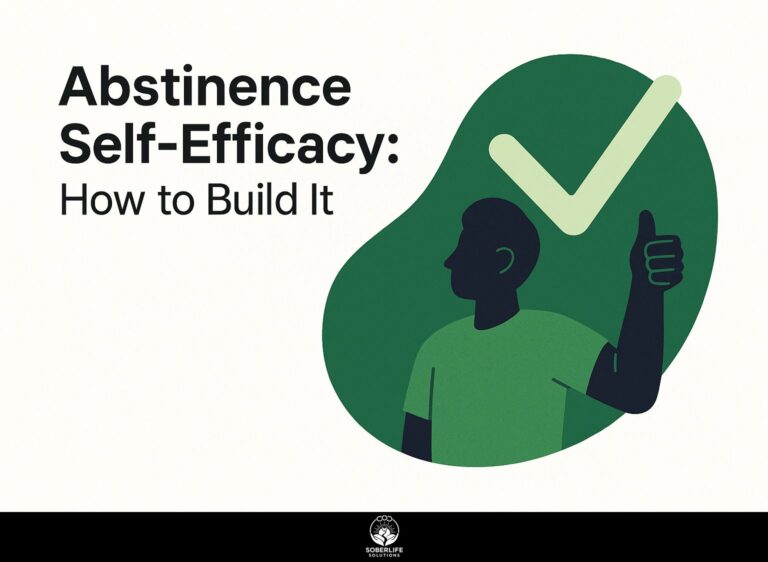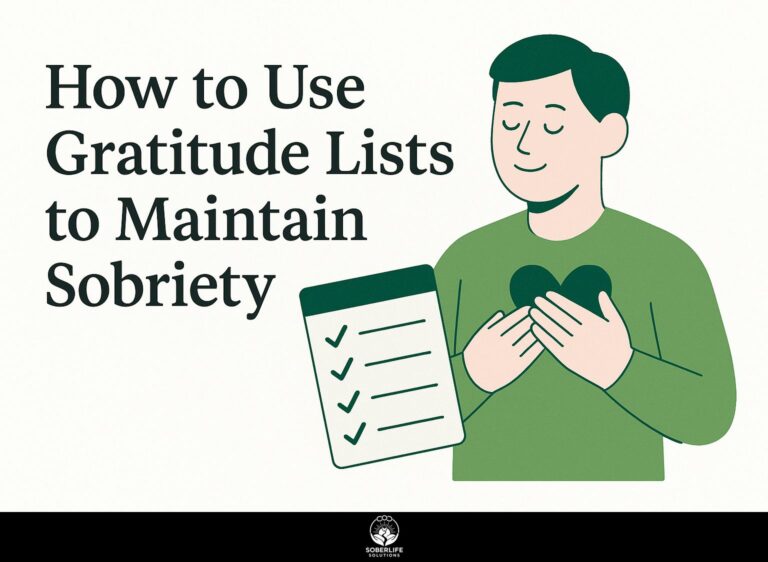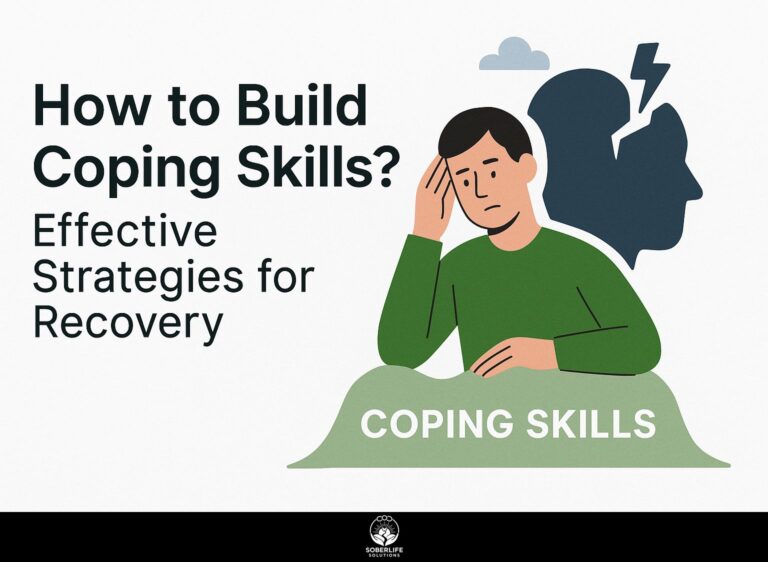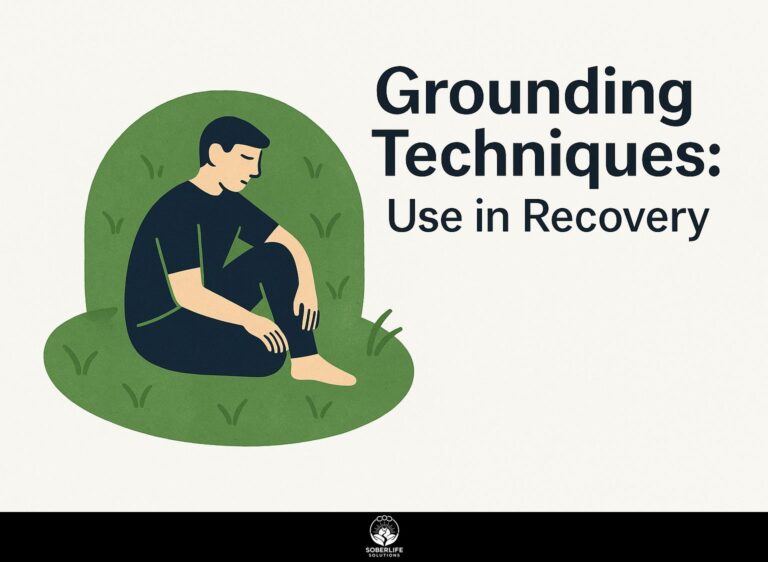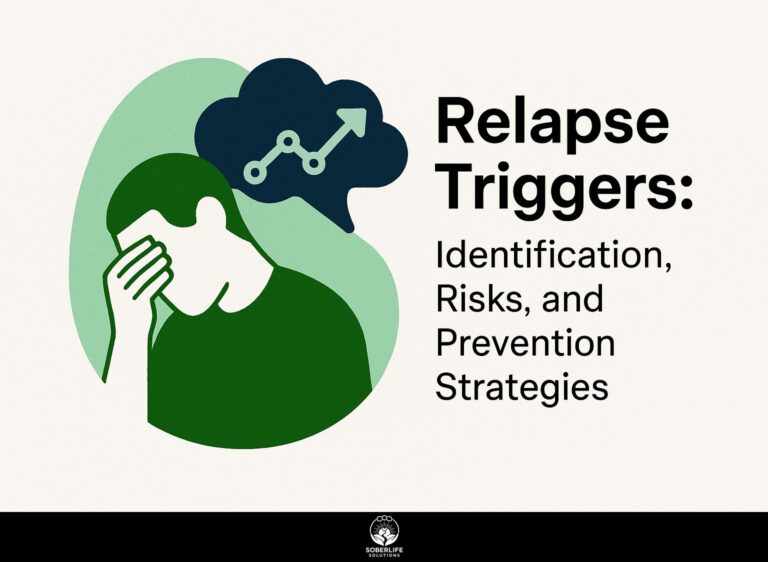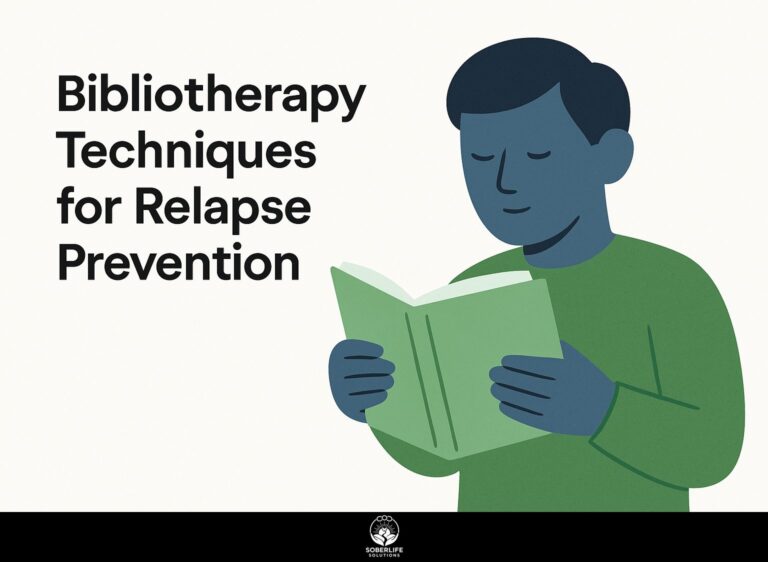Emotional Relapse: Signs and Coping Strategies
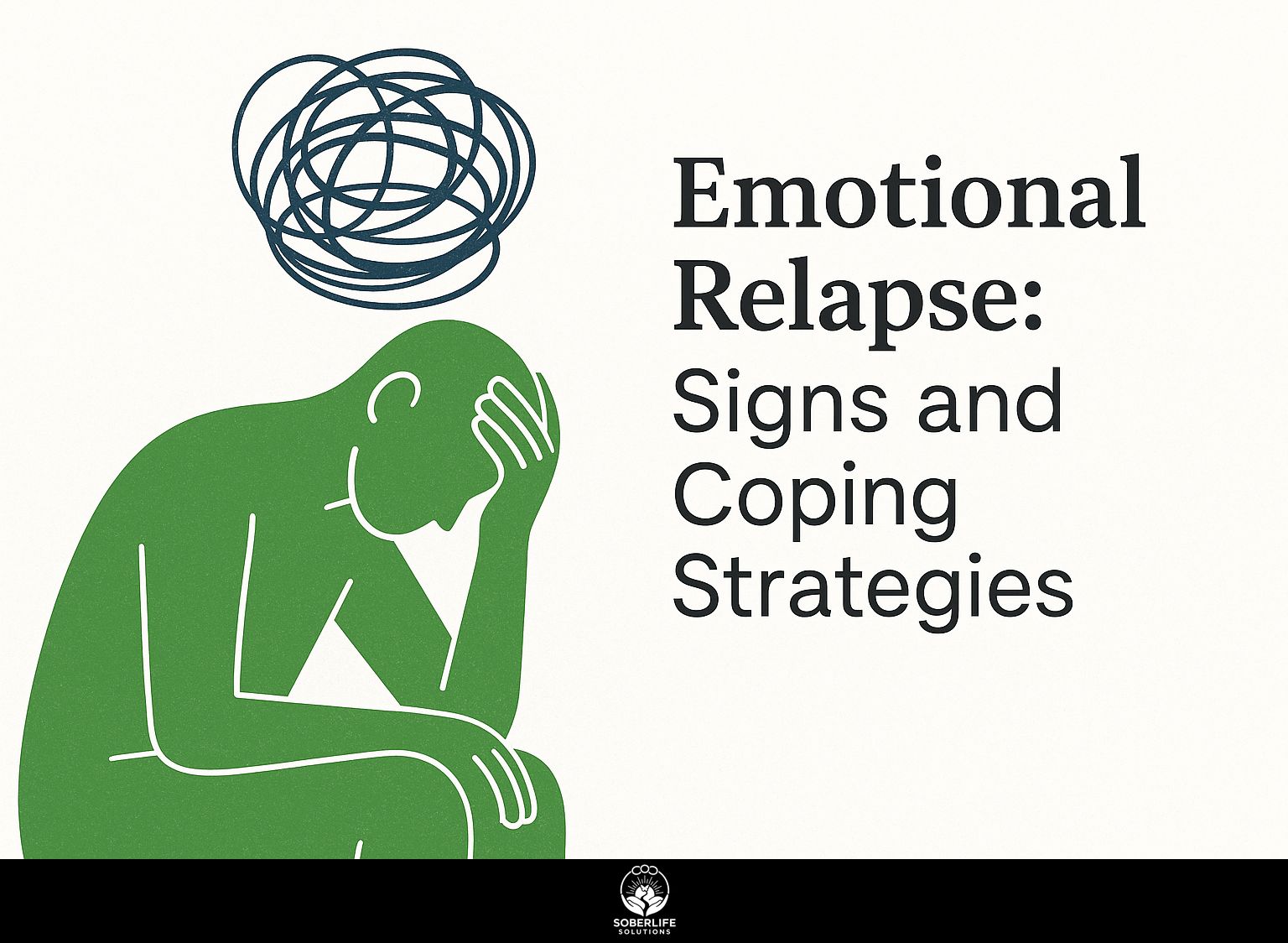
Relapse often happens during addiction recovery. Recognizing emotional relapse is important for staying sober for a long time. This stage usually comes before mental and physical relapses, so it’s important to identify the signs early. In this article, we will look at the main signs of emotional relapse and provide useful ways to handle them. This will help you deal with these emotional challenges and stay committed to recovery, becoming more resilient.
Key Takeaways:
Understanding Emotional Relapse
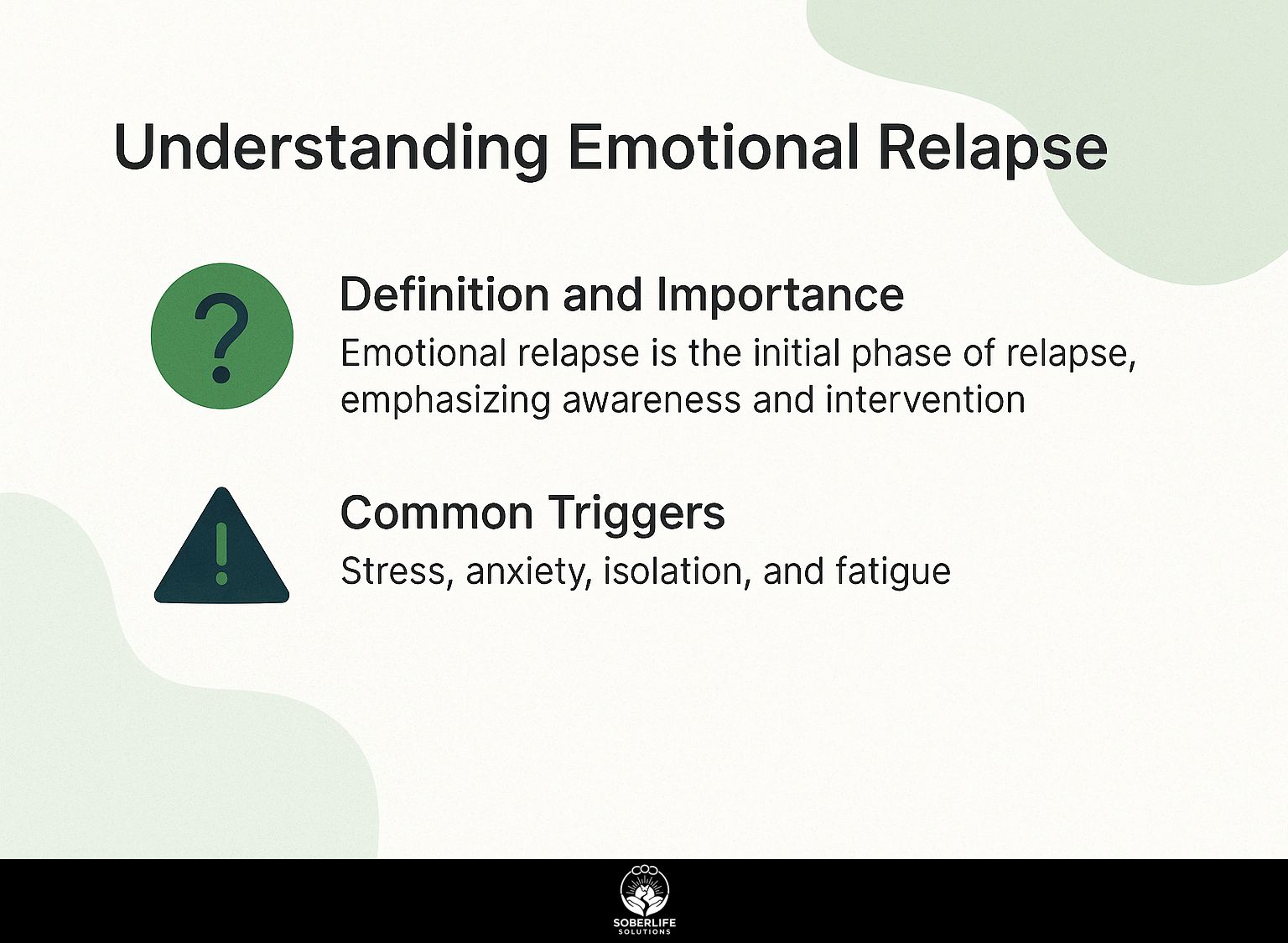
Emotional relapse happens when people who are trying to stop using substances start feeling and thinking negatively. These feelings and thoughts can cause them to use substances again, so it’s important to notice and deal with these early warning signs. According to Nature, emotional dysregulation is a critical driver of relapse, highlighting the importance of addressing these emotional challenges. For those exploring ways to mitigate these risks, understanding how to create a relapse prevention plan can be invaluable.
Definition and Importance
Emotional relapse happens when people start falling back into harmful emotional habits, even if they aren’t using substances again, which can threaten their recovery progress.
Identifying emotional relapse is important for maintaining long-term sobriety. Approximately 80% of individuals experience emotional relapse prior to any physical relapse, underscoring the need for effective strategies.
To combat emotional relapse, individuals can practice mindfulness techniques, such as meditation or journaling, to increase self-awareness. Establishing a support network or attending regular recovery meetings can provide essential encouragement.
Using tools like mood tracking apps can help spot early signs of emotional discomfort, allowing for quick action and a solid base for long-term healing.
Common Triggers
Common triggers for emotional relapse often include unresolved emotional pain, mood swings, isolation, and heightened cravings for substances, which can lead individuals to engage in old habits.
To effectively deal with these triggers, individuals can use specific methods.
-
To work through emotional pain that hasn’t been addressed, writing in a journal or talking to a therapist can be effective ways to deal with these emotions in a healthy manner.
-
Mood swings may be mitigated through regular exercise and a balanced diet, which stabilize mood levels.
-
To reduce isolation, joining support groups or participating in community activities helps create connections and a sense of responsibility. Resources such as the National Helpline for Mental Health, Drug, Alcohol Issues by SAMHSA provide crucial support in fostering these connections.
-
Managing cravings can involve mindfulness techniques (our Mindfulness-Based Relapse Prevention: Program Benefits offers a comprehensive look at these methods) or distractions, such as engaging in a hobby or calling a friend.
Implementing these concrete actions can help create resilience against relapse triggers.
Signs of Emotional Relapse
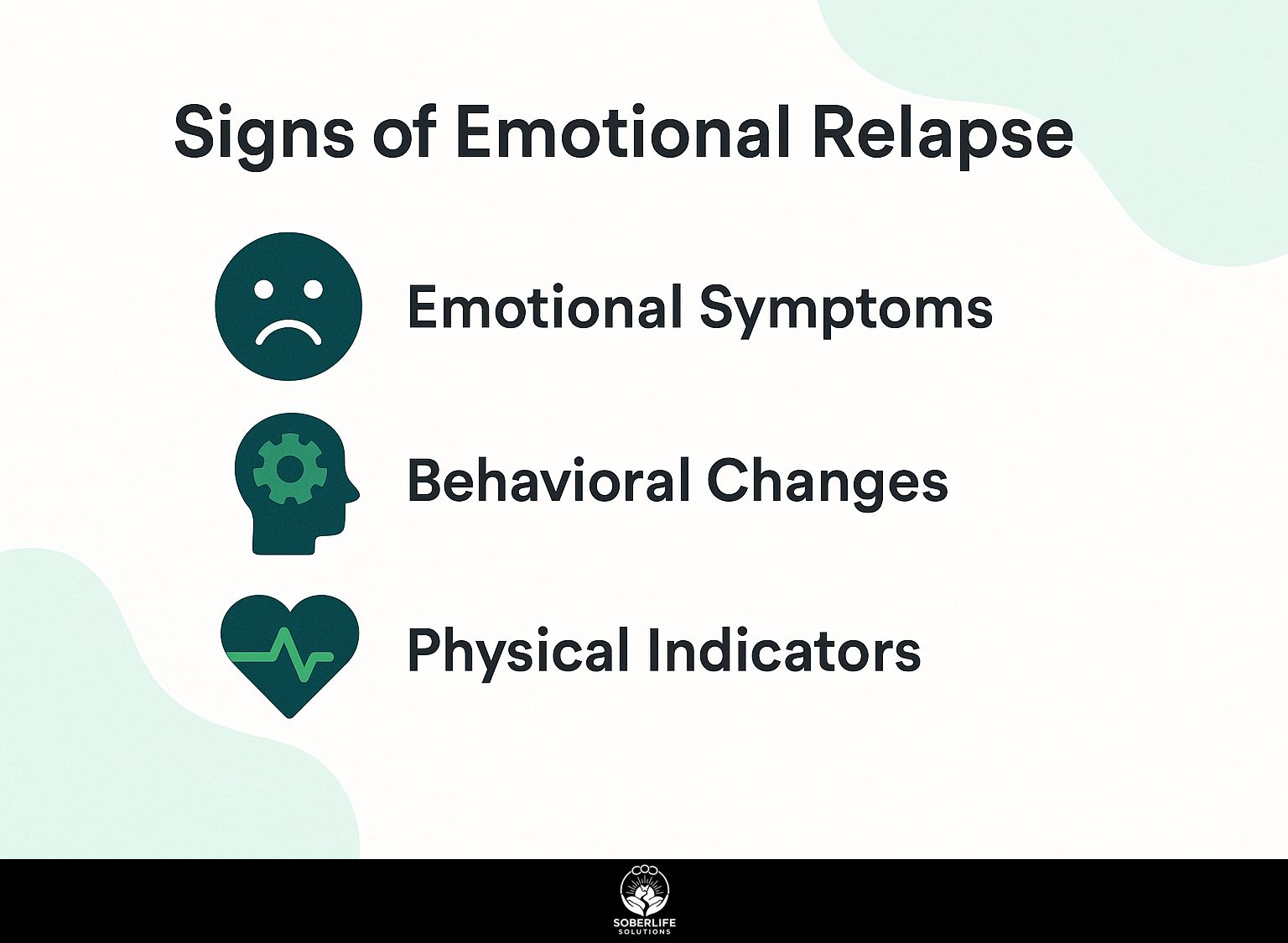
It’s important to notice the signs of emotional relapse early. These signs often appear before bigger problems in recovery.
Emotional Symptoms
Emotional symptoms of relapse may include increased anxiety, depression, feelings of emptiness, and emotional distress, which necessitate immediate attention to prevent further decline.
During recovery, approximately 30% of individuals report heightened anxiety as they confront triggers and changes in their daily life. In fact, a study published by Nature highlights the significant impact of personal recovery outcomes on mental health, underscoring the importance of addressing these challenges.
For example, feelings of emptiness can lead to isolation, where individuals withdraw from social activities, exacerbating depressive symptoms.
It’s important to use coping methods like mindfulness or writing in a journal to express emotions clearly. Tools like the Headspace app can guide mindfulness sessions, helping to mitigate anxiety.
Getting help from experts, like therapists or support groups, is very important for creating a strong plan to prevent relapse.
Behavioral Changes
Behavioral changes in individuals experiencing emotional relapse may include withdrawal from social interactions, neglect of self-care, and a decline in adherence to recovery activities.
To identify these signs early, individuals can reflect on their recent behaviors and feelings.
Ask yourself: Have I avoided conversations with friends? Am I skipping self-care routines such as exercise or grooming? Note if you’re missing support group meetings, as this can signal increased isolation and a risk of relapse.
For example, if a person who usually participates in group therapy suddenly stops, this might suggest serious emotional issues that should be dealt with quickly.
Physical Indicators
Physical indicators of emotional relapse often manifest as poor sleep quality, changes in appetite, and general fatigue, which can further exacerbate emotional distress.
To track these symptoms effectively, consider maintaining a daily journal. Write down how long you sleep, how well you sleep, and any mood changes you notice when you wake up.
For instance, note nights where you sleep less than six hours or feel unrested. Monitor changes in appetite, craving unhealthy foods, or overeating.
This practice shows patterns and explains what causes emotional problems. As time goes by, it becomes easier to understand what’s happening, allowing proactive actions such as getting better sleep or changing eating habits, which can result in improved control over emotions.
Coping Strategies for Emotional Relapse
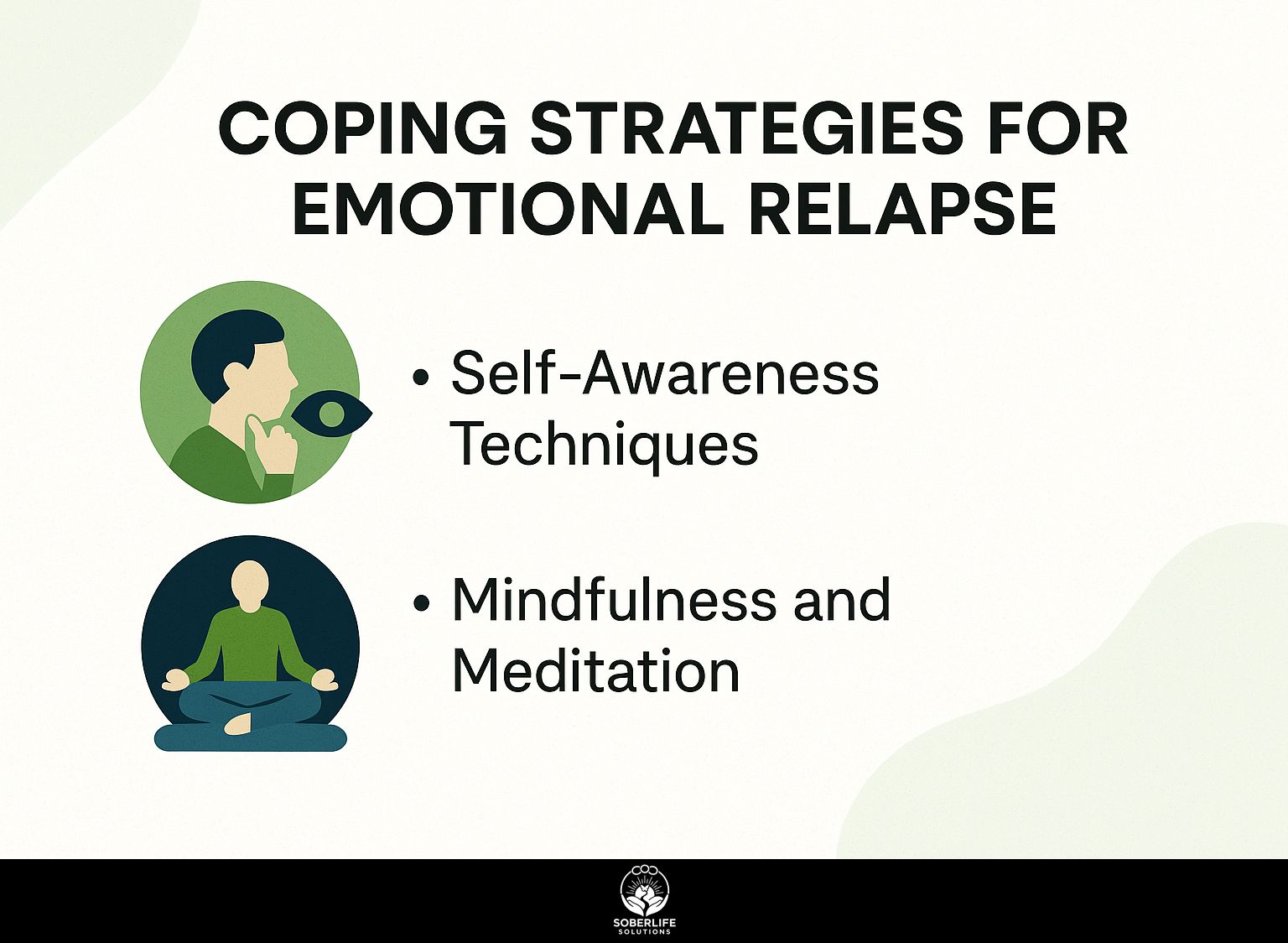
Using effective coping strategies is important for managing emotional setbacks, improving self-awareness, and staying mindful to remain focused during recovery. Curious about how mindfulness can further aid in relapse prevention? Explore our insights on mindfulness-based relapse prevention to enhance your understanding and application of these techniques.
Self-Awareness Techniques
Practicing self-awareness techniques, such as journaling and identifying emotional triggers, helps individuals recognize their feelings and behaviors before they escalate.
To improve this practice, try daily check-ins to evaluate your emotions. You might ask yourself questions like, “What am I feeling right now?” or “What triggered this emotion?”
Expressing your feelings in writing can be a great help; try using questions like:
- “What craving did I experience today, and what triggered it?”
- “How did I cope with my feelings?”
These activities allow for proactive coping and can significantly improve emotional regulation, leading to healthier responses in challenging situations.
Mindfulness and Meditation
Incorporating mindfulness and meditation into daily routines can significantly reduce anxiety and improve emotional regulation, thus lowering the risk of relapse. For more insights on how mindfulness and meditation can aid in addiction recovery, consider exploring our comprehensive guide on techniques and benefits.
To start a simple 5-minute daily meditation practice, find a quiet space where you won’t be disturbed. Use guided meditation apps like Headspace or Calm, which offer subscriptions starting at $12.99/month.
You can find free resources on YouTube, like the “The Honest Guys” channel for brief sessions.
Studies show that doing brief meditation exercises regularly can make your emotions stronger, which can be helpful in your daily routine. Practice at the same time each day to build a regular routine.
Seeking Support
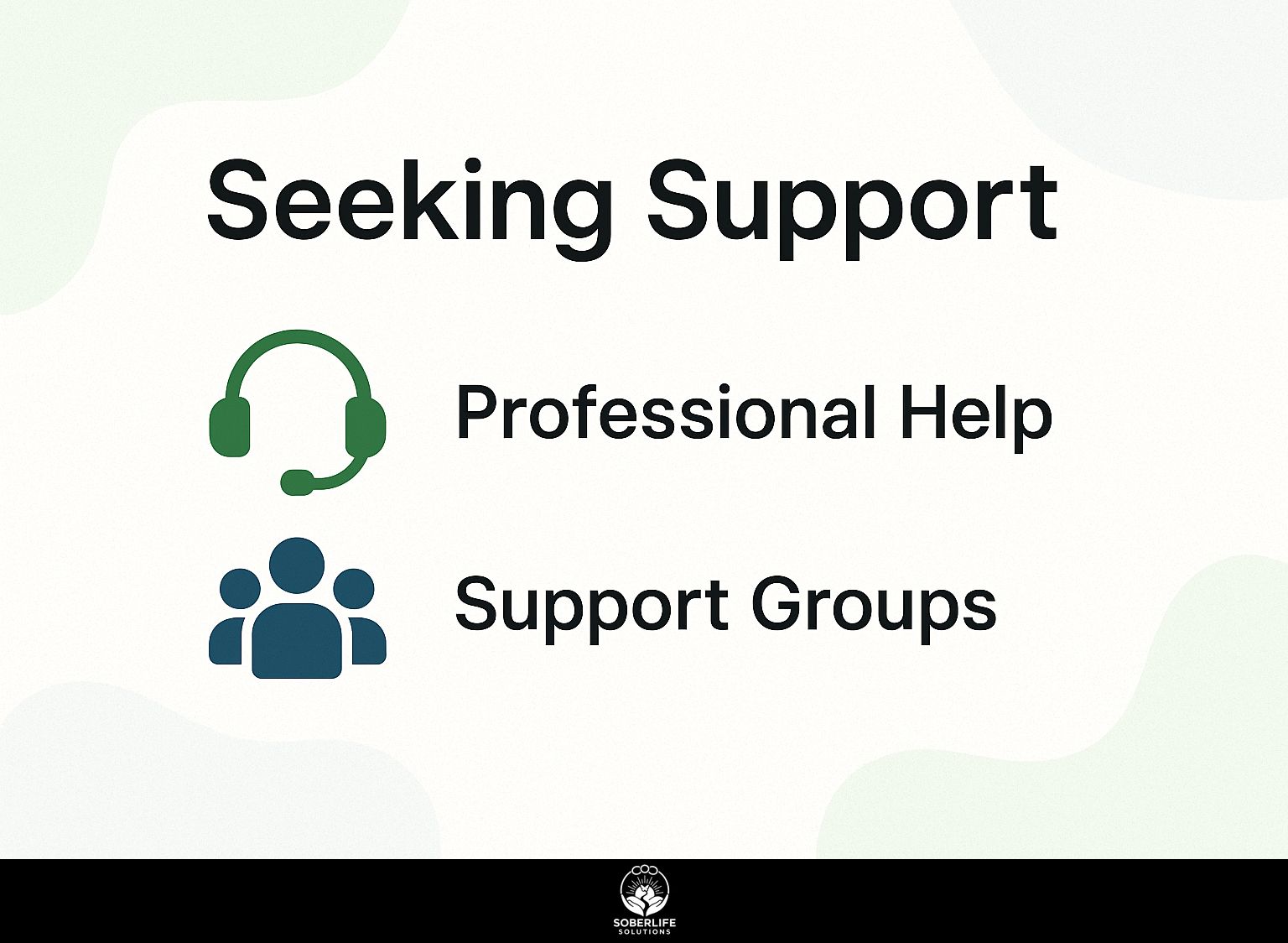
Getting help from experts and peer groups is important for preventing relapse. It gives people the tools and motivation they need to stay on track with their recovery.
Professional Help
Getting help from professionals, such as therapy or counseling, can provide customized plans and strategies to manage issues that are important for maintaining sobriety and addressing underlying problems.
One effective option is Cognitive Behavioral Therapy (CBT), which helps individuals recognize and change negative thought patterns. Typically costing between $100 and $200 per session, CBT has a success rate of about 60-70% for those facing addiction-related challenges.
Another method is group therapy, which builds community support and encourages shared responsibility, often offered at a lower cost. Using different therapy approaches can improve recovery. Individual plans address particular problems and support social relationships.
This approach has multiple steps and supports individuals in maintaining sobriety over an extended period.
Support Groups
Participating in support groups such as Alcoholics Anonymous (AA) or SMART Recovery can help individuals connect with others and gain control over their actions. This link is important for those dealing with social problems during recovery.
These groups often meet weekly and provide a structured environment for sharing experiences and strategies.
AA relies on donations, allowing people to join easily. SMART Recovery uses proven scientific approaches and offers free materials and meetings.
To locate nearby meetings, go to websites such as aa.org or smartrecovery.org. Several communities provide family support groups and online options for people with movement difficulties, allowing each person to locate a helpful network that fits their needs.
Preventing Future Relapses
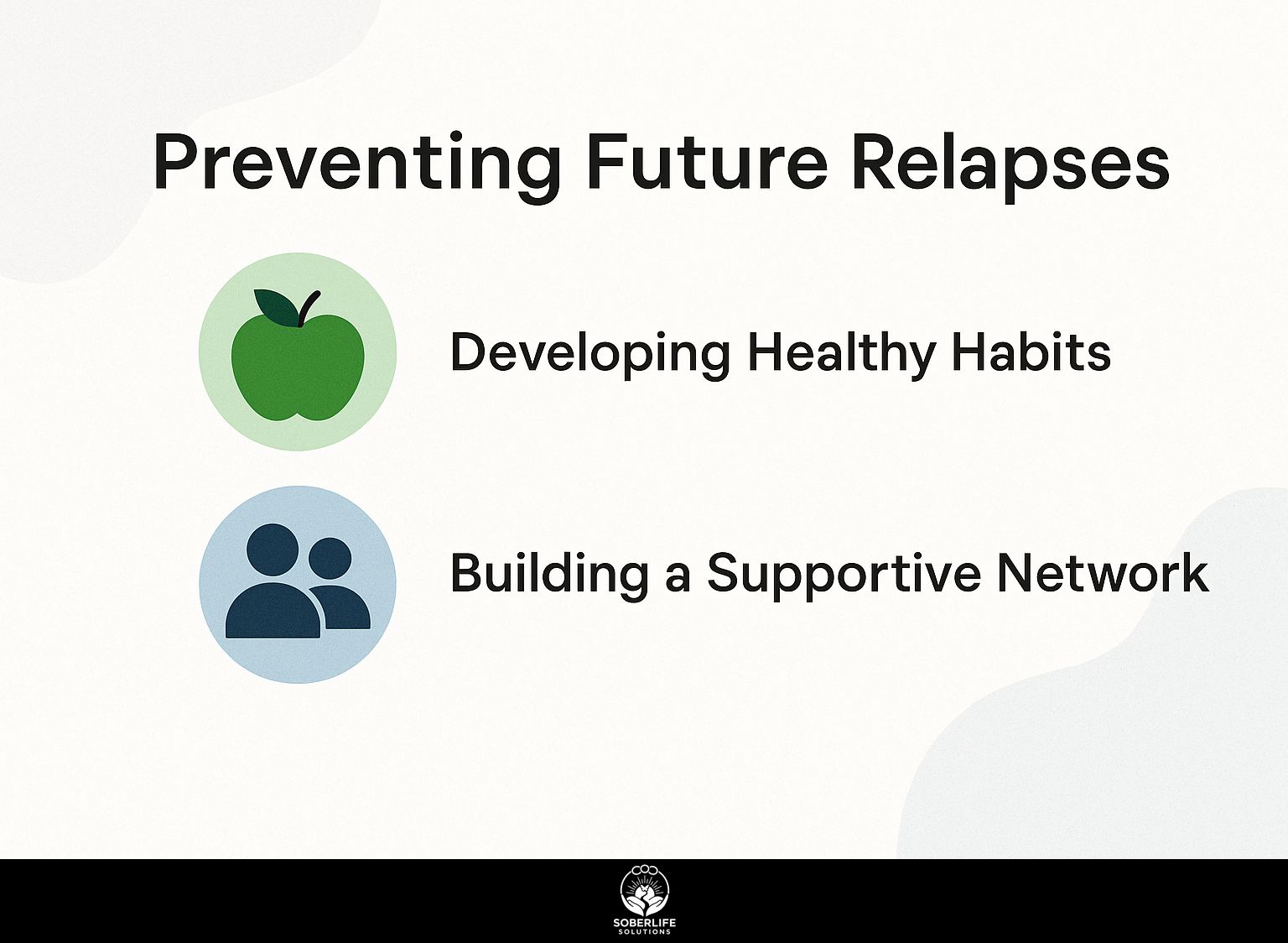
Avoiding setbacks in recovery involves building solid habits and having dependable people around you, which are important for maintaining progress over time. One of our most insightful case studies demonstrates how establishing a comprehensive relapse prevention plan can significantly enhance long-term recovery success.
Developing Healthy Habits
Developing healthy habits, such as regular exercise, balanced nutrition, and adequate sleep, significantly contributes to emotional stability and reduces the risk of relapse.
Being active can improve your mood by almost 20%. Start with simple exercises like brisk walking or cycling for at least 30 minutes a day, aiming for five days a week.
Pair your workouts with balanced meals that include lean proteins, whole grains, and plenty of fruits and vegetables. Regularly monitor your sleep patterns; aim for 7-9 hours of quality sleep per night.
These small, manageable actions create a solid foundation for a healthier, more fulfilling lifestyle.
Building a Supportive Network
Having a group of supportive friends, family, and recovery peers creates a safety net that helps individuals handle the challenges of recovery and prevents emotional relapse.
To find and gather supportive people, start by considering your existing relationships. Identify those who have previously shown empathy or compassion.
Engage in community support groups, where like-minded individuals can be found. Stay connected by texting or calling often. Arrange monthly coffee meetings to share experiences and increase motivation.
Participating in group activities like fitness classes or volunteering builds stronger relationships and a sense of community and responsibility.
Frequently Asked Questions
What is emotional relapse?
Emotional relapse is a stage in the recovery process where an individual starts to experience negative emotions and thoughts that could lead them back to their addictive behavior. It is characterized by the onset of fear, anger, and anxiety.
What are the signs of emotional relapse?
The signs of emotional relapse include isolating oneself, not attending support groups or therapy sessions, neglecting self-care, and experiencing mood swings and irrational thoughts. Other signs may include avoiding people or places associated with past addiction, and having difficulty sleeping or concentrating.
How can I cope with emotional relapse?
One way to cope with emotional relapse is to practice self-care. This includes getting enough rest, eating well, and engaging in activities that bring you joy and relaxation. Talking to a trusted friend or therapist about your feelings and joining a support group can help.
What are some triggers for emotional relapse?
Triggers for emotional relapse can vary from person to person, but common ones include stress, feelings of loneliness, boredom, and unresolved past traumas. It’s important to identify your personal triggers and develop a plan to cope with them in a healthy way.
Is it normal to experience emotional relapse during recovery?
Yes, it is normal to experience emotional relapse during the recovery process. Recovery takes time, and it’s normal to experience both progress and setbacks. The important thing is to recognize the signs of emotional relapse and take proactive steps to cope with it.
What are some effective coping strategies for emotional relapse?
Some effective coping strategies for emotional relapse include practicing mindfulness and relaxation techniques, engaging in healthy activities such as exercise or hobbies, and practicing positive self-talk. It can help to remember why you chose to recover and to get support from family or a therapist.

